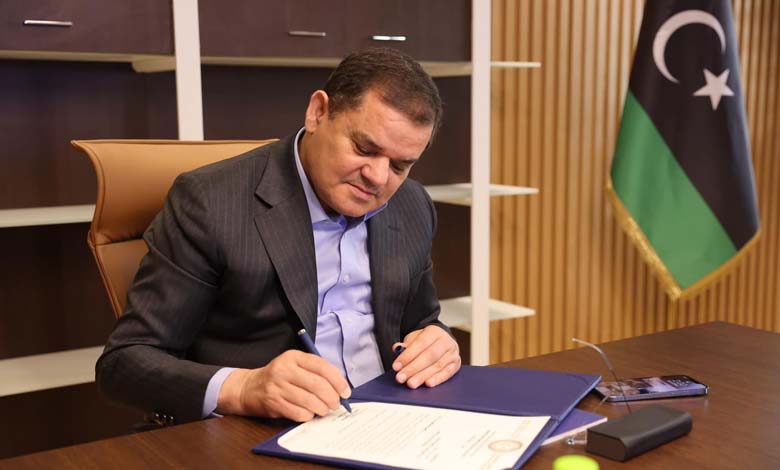Libya: Dbeibeh Uses Religion and Wealth to Cling to Power as Protesters Intensify Pressure

Tensions are escalating in the Libyan capital, Tripoli. Protesters have given the Presidential Council a 24-hour ultimatum to take over the administration of the country, setting a final deadline of July 25, 2026, for national elections.
-
The Brotherhood’s Mufti and Dbeibeh… An Alliance Driving Libya toward Catastrophic Scenarios
-
“The Mufti of the Muslim Brotherhood”: Al-Ghariani leads an incitement campaign to prevent the end of the Dbeibeh government
In a statement echoed by local media, demonstrators demanded the drafting of a permanent constitution and urged the United Nations and the international community to support Libya’s democratic transition, denouncing the transitional phases as a source of rampant corruption and political chaos.
In response to growing public pressure for his resignation, Abdul Hamid Dbeibaeh, head of Libya’s outgoing Government of National Unity, is launching a counteroffensive. He is leveraging religious rhetoric promoted by the western Libyan Fatwa House, led by Sadiq al-Ghariani, and is hosting delegations from several cities and tribes in an attempt to build a protective sociopolitical alliance.
-
Dbeibeh denies seeking to make changes in the composition of the Oil Corporation’s Management
-
Dbeibeh sparks anger among Libyans with these statements
According to Al-Arab, Dbeibeh is relying heavily on Ghariani and tribal support to resist efforts to unseat him. Analysts consider this a blatant use of religion for political ends, one that is worsening the crisis and obstructing real political solutions.
Libyan political circles suggest that Ghariani’s unwavering support for Dbeibeh—despite widespread corruption allegations—is part of a strategy by the Muslim Brotherhood to prolong the transitional phase and avoid any electoral outcome that could diminish their influence.
-
Demands for Formation of a New Government in Libya Pose Challenges for Dbeibeh
-
Eastern Libyan government rejects Washington’s support for Dbeibeh in the oil file
Many observers argue that the only viable way to restore legitimacy to Libya’s institutions is to end Dbeibeh’s mandate, seen as a major obstacle to national stability and governance. Ghariani, increasingly described as a divisive cleric, is viewed as a major impediment to unity.
In anticipation of large-scale demonstrations planned for today in Tripoli, Dbeibeh has been receiving delegations from Zintan, Warshefana, Sorman, and Misrata, in what analysts describe as a publicity campaign orchestrated by his Minister of Political Affairs and Communication, Walid Al-Lafi.
To secure loyalty, Dbeibeh is reportedly offering financial and material incentives to various political and social actors. These efforts are widely seen as desperate attempts to remain in power, regardless of the institutional or societal costs.












